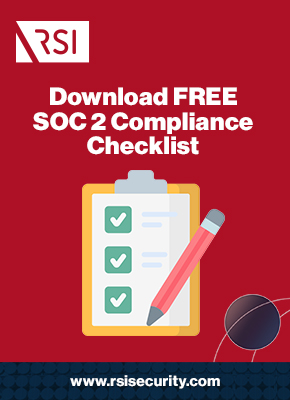Overseen by the American Institute of Certified Public Accountants (AICPA), SOC 2 evaluates the implementation of effective standards and controls for organizations outside the financial sector, including software-as-a-service (SaaS) providers. Since the SOC 2 certification validity period only lasts for a limited amount of time, those pursuing certification on a long-term basis will need to dedicate themselves to learning and maintaining these rules.
SOC 2 At a Glance
The rules and guidelines of SOC 2 provide a clear framework for service organization audits assessing the implemented controls that safeguard consumer data and relevant IT systems. SOC 1 is reserved for organizations specifically in the financial industry; those outside the sector primarily use SOC 2.
Depending on your current status, SOC 2 certification could take up to 12 months to obtain. However, because of a strict SOC 2 certification validity period, those pursuing long-term SOC 2 certification must recertify every year.
To streamline the process as much as possible, you’ll want to be familiar with:
- The purpose of SOC certification and reporting
- The SOC 2 certification timeline
- The SOC 2 reporting timeline
- The SOC 2 auditing process
Understanding the SOC 2 Certification Validity Period
Some professional certifications and accreditations last a lifetime. College diplomas and trade school degrees never have to be renewed. Others—like SOC 2 certification—only last for a period of 12 months.
After the 12-month period has passed, those who wish to maintain their status must retake the certification process. But before your organization can recertify, it must navigate the initial stage of the SOC 2 certification timeline.
Organizations that have yet to obtain SOC 2 certification for the first time will need to pass the lengthy certification process, which can last for up to 12 months in some of the most prolonged cases. However, the average certification process length is closer to six months. Those seeking recertification can complete the process much quicker, but it’s still a continuous commitment for any organization.
Request a Free Consultation
Understanding SOC 2 Reports
Coinciding with the SOC 2 certification validity period, SOC 2 reports are also valid for 12 months. This timeline begins on the report’s original issue date. After 12 months have elapsed, these outdated reports are considered stale. That’s why most SOC 2 audits are scheduled annually.
There are two different SOC 2 reports to consider:
- SOC 2 Type 1 – Though the report focuses on security controls and system stability at a given moment, your first SOC 2 Type 1 report could take a few months.
- SOC 2 Type 2 – Far more complex than Type 1 reports, SOC 2 Type 2 reports are only generated after long-term audits. In some cases, these audits might last as long as 12 months. These audits focus on infrastructure, software, personnel, data security, and automation.
While SOC 2 Type 1 reports require less time and financial investment, they lack the comprehensiveness of SOC 2 Type 2 reports. SOC 2 Type 1 audits only provide a snapshot of your organization’s security framework, but SOC 2 Type 2 audits take it much further in assessing ongoing effectiveness. Incidentally, many organizations pursue Type 1 on their way to pursuing Type 2. Although the latter is more demanding, they will help ensure your clients’ confidence in your cybersecurity and internal controls.

Understanding the SOC 2 Auditing Process
Regardless of the Type, current SOC 2 audits generally follow a similar, standardized process. Understanding these steps will help your organization prepare for SOC 2 auditing or certification. These steps include:
- Establishing scope – A critical first step, this defines the most important controls and benchmarks for auditing. This stage is sometimes used for readiness assessment, too.
- Performing gap analysis – Comprehensive gap analysis helps you detect potential issues before undergoing an audit. If gaps still remain, most auditors can provide guidance for remediation. Persistent gaps will extend your certification timeline.
- Attestation – This is where the audit actually takes place. Auditors take care to follow the AICPA attestation standards and perform an evaluation against the Trust Services Criteria (TSC) when performing SOC 2 audits of either type.
- Report finalization – The entire process is finalized in this phase. When everything’s complete, the auditor delivers their final report for review.
Note that a SOC 2 Type 1 audit can feed into a SOC 2 Type 2 audit down the line. Then, if your organization is also considering generating a SOC 3 later on, the SOC 2 Type 2 will facilitate it.
Making the Most of SOC 2
The brief SOC 2 certification validity period ensures that the assessment of your organization’s internal controls and systems security remains robust and effective. However, the year-long duration places an increased burden on many organizations.
RSI Security’s SOC 2 certification and advisory services—such as gap assessment—will help streamline the process, regardless of which Type you choose to pursue.
For more information on SOC 2 certification or to begin your SOC 2 audit right away, contact RSI Security today.

